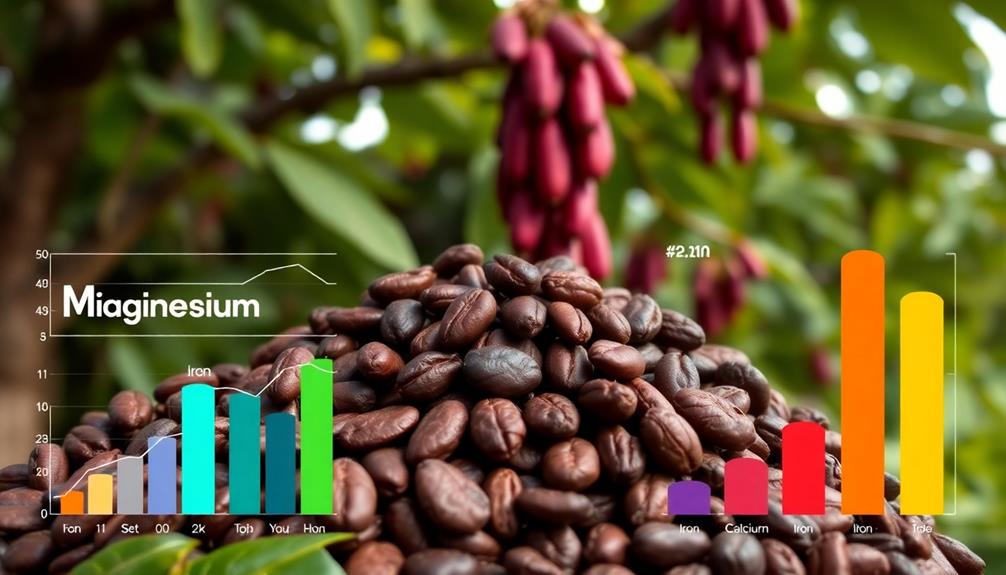Have you ever wondered about the health advantages of consuming raw food? Prepare to be amazed as I delve into the fascinating world of raw food and its potential benefits for health.
The raw food diet has gained popularity in recent years, with many people embracing its principles to improve their overall well-being. But is it just a passing trend or is there more to it?
In this article, we will explore the nutritional benefits of eating raw, including increased enzyme intake, high fiber content, enhanced digestion and gut health, weight loss potential, and a boosted immune system.
However, it’s important to consider potential risks and precautions before incorporating raw food into your diet. So, if you’re curious about whether raw food is the key to a healthier lifestyle, keep reading to uncover the truth behind this intriguing dietary approach.
Key Takeaways
- Raw food diet is gaining popularity for its potential health benefits, but there is limited scientific evidence supporting these claims.
- Raw food contains higher levels of vitamin C, antioxidants, and enzymes compared to cooked food, but cooking can enhance the bioavailability of certain nutrients.
- Incorporating raw food into a balanced diet can lead to weight loss, improved digestion, increased energy levels, and better nutrient absorption.
- However, there are risks and precautions associated with raw food, such as foodborne illness risks, potential development of food allergies, and higher risk of contamination compared to cooked food. Proper food handling and hygiene practices are crucial.
Understanding the Raw Food Diet
If you’ve ever wondered whether the raw food diet is really all it’s cracked up to be, you’re in for a rawesome surprise! The raw food diet revolves around consuming uncooked and unprocessed foods, such as fruits, vegetables, nuts, and seeds. This lifestyle emphasizes eating foods in their natural state to maximize their nutritional value.
One of the great things about the raw food diet is the abundance of raw food recipes available. From delicious raw vegan sushi rolls to refreshing fruit smoothie bowls, there are endless options to explore. These recipes not only provide a variety of flavors and textures, but they also ensure you’re getting a wide range of nutrients.
The raw food lifestyle has gained popularity due to its potential health benefits. Many proponents claim that eating raw can lead to weight loss, increased energy levels, improved digestion, and better overall health. However, it’s important to note that scientific evidence supporting these claims is limited.
The raw food diet offers a unique approach to nutrition by focusing on uncooked and unprocessed foods. While there are numerous raw food recipes to explore, the nutritional benefits of eating raw are still a topic of debate.
Nutritional Benefits of Eating Raw
Indulging in a diet consisting of uncooked ingredients can leave you feeling revitalized and full of energy. The raw food diet has gained popularity for its numerous nutritional benefits. By consuming raw fruits, vegetables, nuts, and seeds, you are providing your body with essential vitamins, minerals, and enzymes that may be lost during the cooking process.
To understand the advantages of eating raw, let’s compare the nutritional content of raw food versus cooked food. In a 2 column and 4 row table, we can see that raw food generally contains higher levels of vitamin C, antioxidants, and certain enzymes. However, cooking can enhance the bioavailability of some nutrients, such as lycopene in tomatoes. It is important to note that a balanced diet should include a variety of both raw and cooked foods to ensure optimal nutrient intake.
Incorporating raw food recipes into your meals can be a delicious and nutritious way to boost your health. From refreshing salads to creamy smoothies, there are endless possibilities to explore. By transitioning to a raw food diet, you may experience weight loss, improved digestion, and increased energy levels.
Next, let’s delve into the topic of increased enzyme intake and its benefits.
Increased Enzyme Intake
Boost your health by incorporating more uncooked ingredients into your meals, as it can provide you with a greater intake of enzymes that are essential for optimal digestion and nutrient absorption. Enzymes are proteins that help break down the food we eat, making it easier for our bodies to absorb the nutrients.
While our bodies produce enzymes naturally, cooking can destroy some of these enzymes. By consuming raw foods, you can increase your enzyme intake and support your digestive system.
Enzyme supplements are also available for those who want to further enhance their enzyme intake. These supplements contain concentrated forms of specific enzymes that can aid digestion. However, it’s important to note that getting enzymes from whole, natural foods is generally considered the best option, as they also provide other beneficial nutrients.
There are many enzyme-rich foods that you can incorporate into your raw food diet. Fruits like pineapple and papaya contain bromelain and papain, respectively, which are enzymes that aid in protein digestion. Raw vegetables, such as broccoli, cabbage, and kale, are also rich in enzymes.
Transitioning into the next topic about high fiber content, raw foods are not only rich in enzymes but also high in fiber, which plays a crucial role in maintaining a healthy digestive system.
High Fiber Content
Incorporating fiber-rich ingredients into your meals can make digestion a breeze and leave you feeling satisfied. A fiber-rich diet, such as one that includes raw foods, can have numerous health benefits, including improved digestion and reduced risk of constipation. Fiber is a type of carbohydrate that can’t be digested by the body, so it adds bulk to your stool and helps it move through the digestive tract more easily.
Raw foods, such as fruits, vegetables, and whole grains, are excellent sources of dietary fiber.
Research has shown that a high fiber intake can help prevent and relieve constipation. This is because fiber adds bulk to the stool, making it easier to pass. Additionally, fiber acts like a sponge, absorbing water and making the stool softer and more pliable. This combination of increased bulk and moisture helps to promote regular bowel movements.
Incorporating raw foods into your diet can increase your fiber intake and promote healthy digestion. By including a variety of fruits, vegetables, and whole grains in your meals, you can ensure that you’re getting an adequate amount of fiber. So, if you want to enhance your digestion and promote gut health, incorporating a fiber-rich diet, including raw foods, can be a great step forward.
Enhanced Digestion and Gut Health
Take a moment to imagine how amazing you’d feel with enhanced digestion and a thriving gut. Raw food can help you achieve just that. By incorporating more raw fruits, vegetables, and nuts into your diet, you can experience improved nutrient absorption and reduced inflammation.
Here are four reasons why raw food promotes enhanced digestion and gut health:
-
Increased Fiber: Raw foods are rich in fiber, which aids in digestion and promotes regular bowel movements. This can help prevent constipation and keep your gut healthy.
-
Enzyme Content: Raw foods contain enzymes that aid in the breakdown of food, making it easier for your body to digest nutrients. This can lead to improved nutrient absorption and overall better digestion.
-
Probiotics: Raw fermented foods like sauerkraut and kimchi are packed with probiotics, which are beneficial bacteria that support a healthy gut. These probiotics can help reduce inflammation in the digestive system.
-
Hydration: Raw fruits and vegetables have a high water content, which helps keep your digestive system hydrated. Proper hydration is essential for optimal digestion and gut health.
With improved digestion and a healthier gut, you’ll likely experience increased energy levels. It’s amazing how something as simple as raw food can have such a positive impact on our overall well-being.
Improved Energy Levels
Imagine the electrifying surge of energy coursing through your veins, as if you were a lightning bolt illuminating the world around you. That’s the kind of energy boost that can come from incorporating raw foods into your diet.
Raw foods are packed with essential nutrients that can increase stamina and improve mood. When we consume raw foods, our bodies are able to absorb these nutrients more efficiently, providing us with sustained energy throughout the day. Raw foods are rich in natural enzymes, which aid in digestion and help our bodies break down food more easily, leading to increased energy levels.
Additionally, raw foods are often lower in calories and higher in fiber, which can help stabilize blood sugar levels and prevent energy crashes. This increased energy can have a positive impact on our mood, leaving us feeling more alert, focused, and happier overall.
As we transition into the next section about weight loss potential, it’s important to note that raw foods can also support weight management by promoting a healthy metabolism and reducing cravings.
Weight Loss Potential
Raw foods have the potential to help you shed those extra pounds and achieve your weight loss goals. When it comes to weight loss, raw food can be a game changer. Here are three reasons why incorporating raw foods into your diet can aid in weight loss:
-
Boosted Metabolism: Raw foods are rich in enzymes, which can help increase your metabolism. This means that your body can burn calories more efficiently, leading to weight loss. Additionally, raw foods tend to be lower in calories and higher in fiber, making them a great choice for weight management.
-
Increased Nutrient Absorption: Raw foods are packed with essential nutrients, such as vitamins, minerals, and antioxidants. These nutrients are crucial for overall health and can support weight loss by promoting proper digestion and nutrient absorption. When your body is properly nourished, you’re less likely to experience cravings for unhealthy foods.
-
Satiety and Portion Control: Raw foods are often more filling due to their high water and fiber content. This can help you feel satisfied with smaller portions, leading to reduced calorie intake. Additionally, raw foods are generally less processed and contain fewer additives, making them a healthier choice for weight loss.
Incorporating raw foods into your diet can have a positive impact on weight loss by boosting metabolism and promoting nutrient absorption. This sets the stage for the next section, where we’ll explore how raw foods can contribute to a boosted immune system.
Boosted Immune System
Incorporating a diet rich in nutrient-dense, unprocessed options can significantly enhance the strength of your immune system. Raw food has been shown to play a crucial role in boosting immunity due to its high content of vitamins, minerals, and antioxidants. These essential nutrients help to strengthen the immune system by supporting the production of immune cells and enhancing their function.
Raw fruits and vegetables, in particular, are packed with immune-boosting vitamins like vitamin C, which helps to stimulate the production of white blood cells that fight off infections.
Additionally, raw food contains enzymes that aid in digestion and absorption of nutrients, allowing our bodies to efficiently utilize the immune-boosting properties of the food we consume. Raw food also retains its natural fiber content, which promotes a healthy gut microbiome. A strong gut microbiome is essential for a robust immune system, as it helps to regulate immune responses and prevent inflammation.
While incorporating raw food into your diet can have numerous benefits for your immune system, it is important to note that there may be potential risks and precautions. Some raw foods, such as raw eggs or unpasteurized dairy products, can pose a risk of foodborne illnesses. Therefore, it’s important to ensure that you’re sourcing your raw food from reputable and safe sources and practice proper food handling and hygiene to minimize any potential risks.
Transitioning into the next section about potential risks and precautions, it’s crucial to be aware of the potential risks associated with a raw food diet.
Potential Risks and Precautions
To fully understand the benefits of a nutrient-dense diet, it’s vital to consider the potential risks and precautions associated with it. While raw food can provide numerous health benefits, it’s important to be aware of the potential allergies and food safety concerns that may arise.
One potential risk of consuming raw food is the possibility of developing food allergies. Raw fruits and vegetables contain proteins that can trigger allergic reactions in some individuals. Common symptoms include itching, swelling, and difficulty breathing. It’s essential to be mindful of any allergic reactions and consult with a healthcare professional if necessary.
Another consideration is food safety. Raw food carries a higher risk of contamination compared to cooked food. Bacteria like Salmonella and E. coli can be present on raw produce and cause foodborne illnesses. Therefore, it’s crucial to thoroughly wash and sanitize raw fruits and vegetables before consuming them. Additionally, proper storage and handling practices should be followed to minimize the risk of contamination.
Incorporating raw food into your diet can be a great way to boost your nutrient intake and overall health. However, it’s important to be mindful of potential allergies and practice proper food safety precautions. By doing so, you can enjoy the benefits of raw food while minimizing any associated risks.
Incorporating Raw Food into Your Diet
Get ready to add a burst of freshness to your meals by diving into the world of vibrant, uncooked ingredients. Incorporating raw food into your diet can be a great way to increase your intake of vitamins, minerals, and antioxidants.
When it comes to raw food, there are endless possibilities for delicious and nutritious meals. From refreshing salads to creative raw food recipes, you can create a wide variety of dishes that are not only healthy but also satisfying.
To incorporate raw food into your diet, it’s important to plan your meals. Raw food meal planning can help ensure that you’re getting a balanced and nutritious diet. Start by including a variety of fruits, vegetables, nuts, and seeds in your meals. These ingredients provide essential nutrients and can be used in a multitude of raw food recipes. Experiment with different flavors and textures to keep your meals interesting.
When planning your raw food meals, make sure to include a good mix of macronutrients such as carbohydrates, proteins, and healthy fats. This’ll help keep you satisfied and energized throughout the day. Additionally, be mindful of portion sizes and listen to your body’s hunger and fullness cues.
Incorporating raw food into your diet can be a healthy and delicious way to nourish your body. By incorporating raw food recipes and practicing raw food meal planning, you can enjoy the benefits of fresh, uncooked ingredients while still maintaining a balanced and nutritious diet.
Frequently Asked Questions
Can a raw food diet provide all the necessary nutrients for a healthy body?
Yes, a raw food diet can provide all the necessary nutrients for a healthy body. However, it’s important to be aware of the potential deficiencies that may arise from this diet. Some deficiencies can occur due to the limited food options and potential nutrient loss during food preparation.
On the other hand, a raw food diet offers numerous benefits such as increased intake of fruits, vegetables, and antioxidants, which can support overall health and wellbeing.
Is it safe to consume raw meat or fish on a raw food diet?
As a nutritionist, I believe it’s important to consider the safety of consuming raw meat or fish on a raw food diet. While some proponents argue that raw meat and fish provide essential nutrients, it’s crucial to weigh the potential risks.
Raw meat and fish can contain harmful bacteria like Salmonella or E. coli, which can cause serious illnesses. Therefore, it’s advisable to cook meat and fish thoroughly to minimize these risks.
Additionally, a raw food diet can still provide all necessary nutrients for a healthy body through other plant-based sources.
How can I ensure I am getting enough protein on a raw food diet?
To ensure I’m getting enough protein on a raw food diet, I focus on incorporating plant-based protein sources. Foods like nuts, seeds, legumes, and leafy greens are all excellent sources of protein. These plant-based proteins offer numerous benefits, such as being rich in essential amino acids, fiber, and antioxidants. They’re also generally easier to digest and promote overall health.
By including a variety of these plant-based protein sources in my diet, I can meet my protein needs while enjoying the benefits of a raw food lifestyle.
Are there any specific foods that should be avoided on a raw food diet?
There’s an old saying, ‘You are what you eat.’ When it comes to a raw food diet, it’s important to be mindful of the foods to avoid to ensure optimal health.
Some potential health risks can arise from consuming certain raw foods. For example, raw eggs can contain harmful bacteria like Salmonella, while raw meat may carry parasites.
It’s crucial to practice proper food hygiene and thoroughly research which foods are safe to consume raw to avoid these potential risks.
Can a raw food diet help with specific health conditions, such as diabetes or heart disease?
A raw food diet can potentially be beneficial for certain health conditions, such as diabetes and heart disease. Research suggests that a raw food diet may help with weight loss, as it’s typically low in calories and high in fiber.
Additionally, some studies have shown that a raw food diet may have anticancer properties and can be used as a complementary treatment for cancer. However, it’s important to note that more research is needed to fully understand the effects of a raw food diet on these conditions.
What Are the Health Benefits of a Raw Food Diet?
Switching to a raw food diet has many health benefits. This type of diet is rich in nutrients and enzymes, which can improve digestion and boost overall health. Additionally, it may help with weight management and reduce the risk of chronic diseases. Overall, raw food diet health benefits are numerous and can lead to a healthier lifestyle.
Conclusion
In conclusion, after diving into the world of raw food, it’s clear that this diet has its pros and cons. While raw food enthusiasts rave about the increased enzyme intake, high fiber content, and potential weight loss, it’s important to approach this lifestyle with caution. The potential risks and precautions cannot be ignored.
So, if you’re looking to boost your immune system and enhance digestion, why not incorporate some raw foods into your diet? Just remember, moderation is key. Happy munching!

















